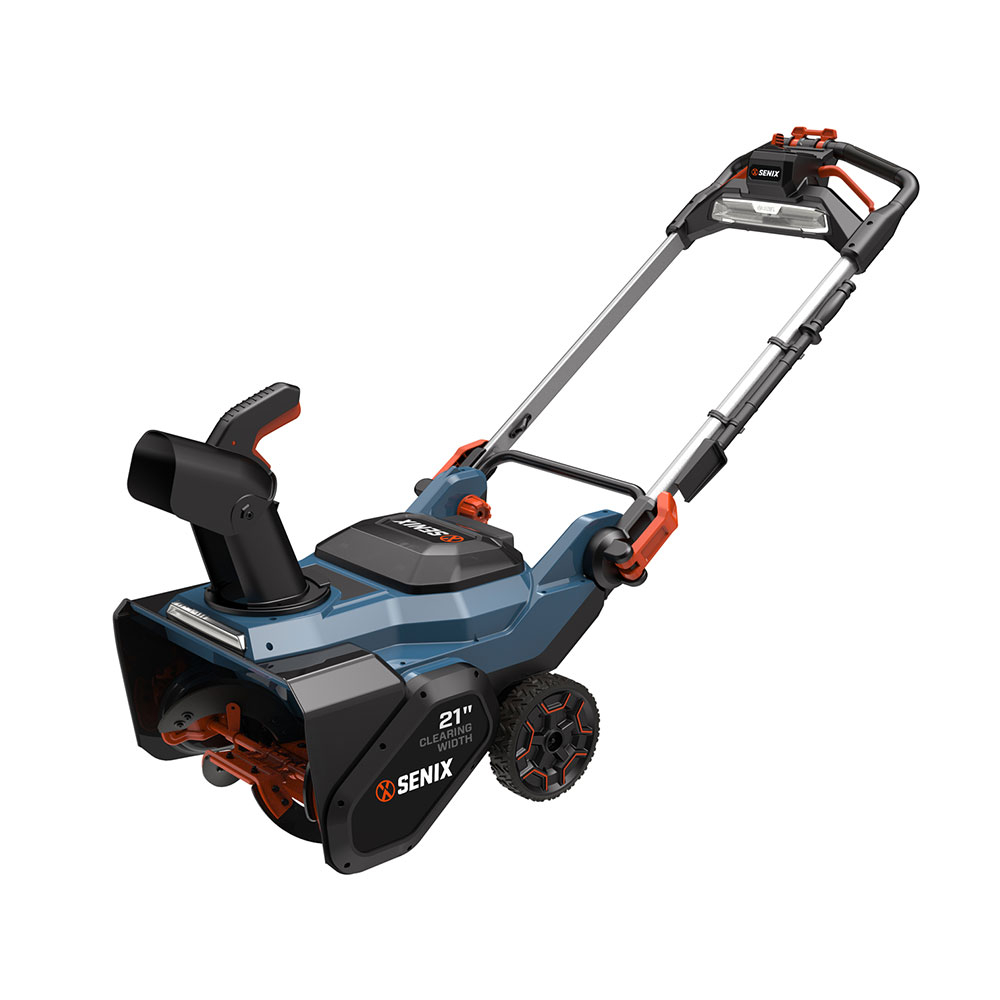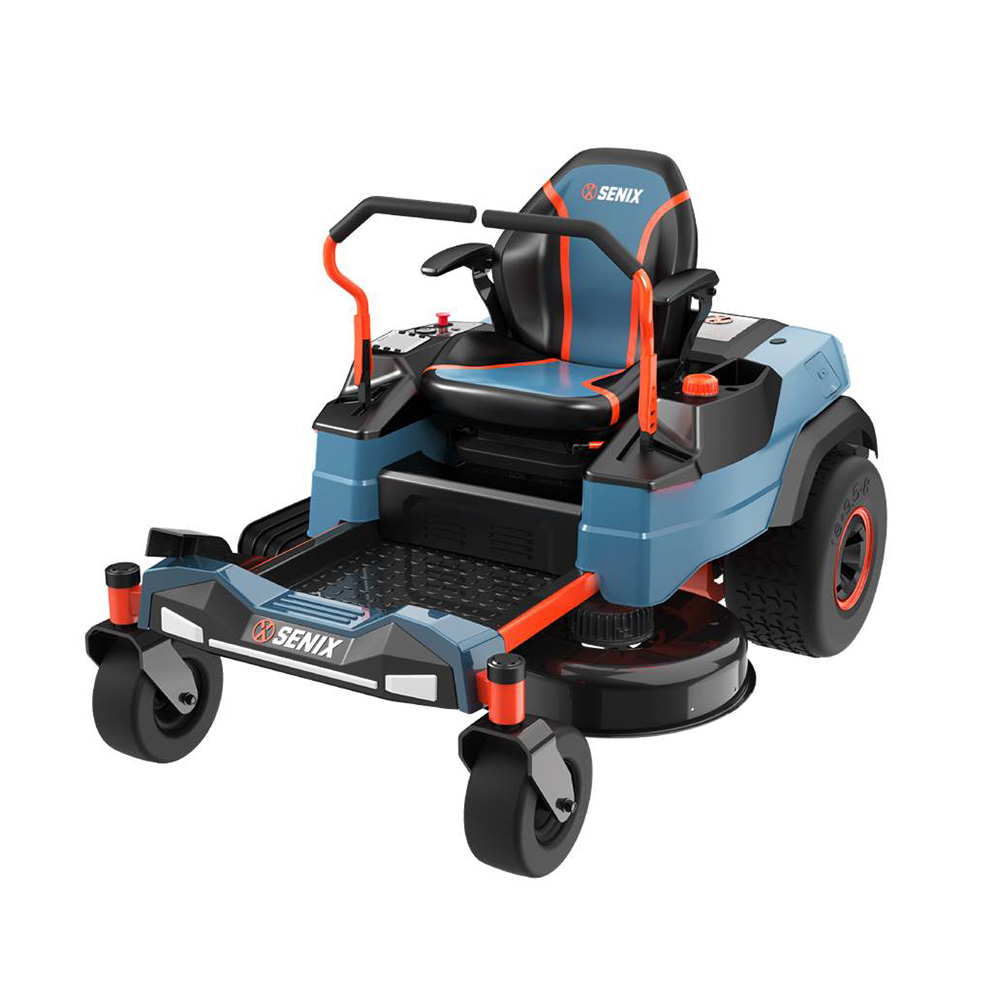Outdoor power equipment is essential for maintaining lawns, gardens, and landscapes, as well as handling various tasks around the yard, such as trimming, cutting, or clearing debris. Whether you’re a homeowner or a professional landscaper, choosing the right outdoor power equipment is crucial for ensuring efficiency, safety, and durability. In this expert guide, we will walk you through everything you need to know to make an informed decision when buying outdoor power equipment, from essential features to key considerations.
1. Understand Your Needs and Applications
Before making any purchase, it's important to clearly define the tasks you need the equipment to perform. Different types of outdoor power equipment are designed for different functions. For instance, you wouldn’t use a leaf blower for mowing your lawn, nor would you use a chainsaw for trimming hedges.
Common types of outdoor power equipment include:
- Lawn Mowers: Ideal for keeping your lawn neat and tidy, available in gas-powered, electric, and battery-operated models.
- String Trimmers and Weed Eaters: Used for edging and trimming around obstacles like trees, fences, and garden beds.
- Leaf Blowers: Essential for clearing leaves, grass clippings, and debris from driveways, sidewalks, and lawns.
- Chainsaws: Perfect for cutting larger branches or trees, offering both gas and electric-powered options.
- Pressure Washers: Useful for cleaning surfaces like decks, patios, and driveways by applying high-pressure water streams.
-
Hedge Trimmers: Designed for shaping and trimming bushes, hedges, and shrubs.
Knowing the primary use of your outdoor equipment will help you narrow down your choices and select the best model for your specific needs.
2. Choose the Right Power Source
Outdoor power equipment comes in various power options: gas-powered, electric-powered, and battery-powered. Each power source has its advantages and disadvantages, and your choice will depend on factors such as power requirements, environmental considerations, and convenience.
Gas-Powered Equipment
Gas-powered outdoor power equipment typically offers higher power output, making it ideal for larger lawns or tougher tasks like cutting thick grass or trees. These tools generally have the advantage of longer run times compared to electric or battery models. However, they tend to be louder, require more maintenance, and emit exhaust fumes, which can be a concern for those who prefer eco-friendly options.
Electric-Powered Equipment
Electric-powered outdoor equipment offers lower emissions and quieter operation compared to gas models. They are also generally easier to maintain. However, they are often less powerful than gas-powered models, and the length of the power cord or battery runtime can limit your range. Electric tools are typically suitable for small to medium-sized lawns or light-duty tasks.
Battery-Powered Equipment
Battery-powered outdoor power equipment is becoming increasingly popular due to its quiet operation and zero-emission benefits. These tools offer good mobility and are perfect for smaller jobs or homeowners with limited storage space. While battery life has improved significantly, these tools may require charging after extended use, making them less ideal for larger properties or heavy-duty tasks.
Consider the power needs of your tasks when selecting the appropriate power source. For larger projects, gas-powered tools may be more suitable, while electric or battery-powered options are great for residential maintenance.
DC 107cm (42’’ ) Zero Turning Riding Mower
3. Focus on Durability and Quality
Durability is one of the most important factors to consider when purchasing outdoor power equipment. Whether you're investing in a lawn mower, trimmer, or chainsaw, the quality of construction directly affects the lifespan of the equipment.
Look for brands and models known for their reliability and longevity. Some features to check for include:
- Heavy-duty Components: Equipment with reinforced parts, such as a sturdy steel deck for lawn mowers or high-quality blades for trimmers, will last longer and perform better.
- Corrosion Resistance: Outdoor power equipment is often exposed to moisture, dirt, and other elements, so choosing models with corrosion-resistant materials (e.g., aluminum or stainless steel) is important.
-
Warranty: A strong warranty indicates that the manufacturer stands behind their product. Look for warranties that cover at least a few years of use and include coverage for both parts and labor.
Durability ensures that you get a better return on your investment, especially if you need the equipment to withstand frequent use over several years.
4. Evaluate Ease of Use and Comfort
Outdoor power equipment should not only be functional but also comfortable and easy to use. Long hours of operation can be tiring, especially if the equipment is difficult to maneuver or causes physical strain. When evaluating equipment, consider the following:
- Weight and Maneuverability: Lighter equipment will be easier to handle, especially if you're working in tight spaces or on uneven terrain. Ensure that the equipment has ergonomic features, such as padded handles or adjustable heights, to reduce strain during use.
- Adjustable Features: For lawn mowers, consider models with adjustable cutting heights to customize the length of the grass. For trimmers, look for tools with adjustable handles to suit your height and preferred working posture.
-
Easy Start Mechanism: Look for models with easy-start features, whether it's a push-button start or an automatic choke for smoother operation. A hassle-free startup can save you time and frustration.
Comfort and ease of use will improve your productivity and make your outdoor tasks more enjoyable and efficient.
5. Budget and Long-Term Value
Outdoor power equipment comes in a wide range of prices, from affordable entry-level models to high-end, professional-grade machines. When shopping for equipment, it’s essential to balance your budget with the value you receive in terms of performance and durability.
While it might be tempting to choose the cheapest option, investing in higher-quality equipment will often save you money in the long run due to fewer repairs, greater efficiency, and longer service life. Additionally, consider the ongoing operating costs such as fuel, electricity, or battery replacements.
Here are some budget tips:
- Set a realistic budget: Determine how much you're willing to spend and prioritize your needs. Consider whether you're looking for a one-time investment or a long-term solution.
- Look for sales and promotions: Many manufacturers offer seasonal discounts or promotions, so be on the lookout for good deals.
-
Consider used equipment: If you're on a tight budget, purchasing used or refurbished equipment in good condition can be a viable option, but be sure to check the equipment's functionality and warranty terms.
Remember, choosing the right equipment within your budget will pay off in terms of reliability and efficiency, reducing the need for frequent repairs or replacements.
Frequently Asked Questions (FAQs)
1. What is the best type of outdoor power equipment for small lawns?
For small lawns, electric or battery-powered tools are typically the best option. They are quieter, lighter, and easier to store, making them ideal for homeowners with limited space and light maintenance needs. A cordless battery-powered mower or a small electric trimmer can handle small yards effectively.
2. How do I maintain my outdoor power equipment?
Regular maintenance is key to extending the lifespan of your outdoor power equipment. Tasks such as cleaning after each use, changing the oil in gas-powered models, sharpening blades, and checking for loose parts or debris will keep your equipment running smoothly. Always refer to the manufacturer’s guidelines for specific maintenance recommendations.
3. Can I use outdoor power equipment in all weather conditions?
While some outdoor power equipment is built to withstand rain or wet conditions, it's generally advisable to avoid using electrical or battery-powered equipment in the rain to prevent damage. Gas-powered models may be more suitable for wet conditions, but always store them in a dry place to avoid corrosion.
3 4. Are there environmentally friendly options available for outdoor power equipment?
Yes, there are many environmentally friendly options available, such as battery-powered or electric models that produce no emissions and operate more quietly than their gas-powered counterparts. Additionally, some manufacturers use recyclable or eco-friendly materials in their products to reduce environmental impact.
5. How do I choose between gas and electric outdoor power equipment?3
Gas-powered equipment is ideal for larger jobs or heavy-duty tasks due to its higher power output and longer run times. On the other hand, electric-powered equipment is quieter, easier to maintain, and more eco-friendly, making it suitable for smaller jobs or residential maintenance. Choose based on the size of the area you need to maintain and your personal preferences for power and convenience.
In conclusion, selecting the best outdoor power equipment involves considering your specific needs, power preferences, durability, ease of use, and budget. By following these expert tips, you'll be able to make an informed decision that enhances your outdoor maintenance tasks and ensures long-term satisfaction with your equipment.
If you want to know more about Senix Tools outdoor power equipments, don't hesitate to contact us today. You may also request a quote, and one of our experts will reach out to develop a cost-effective solution tailored to your needs!


Comments on “Outdoor Power Equipment - A Buyer's Guide From The Experts”